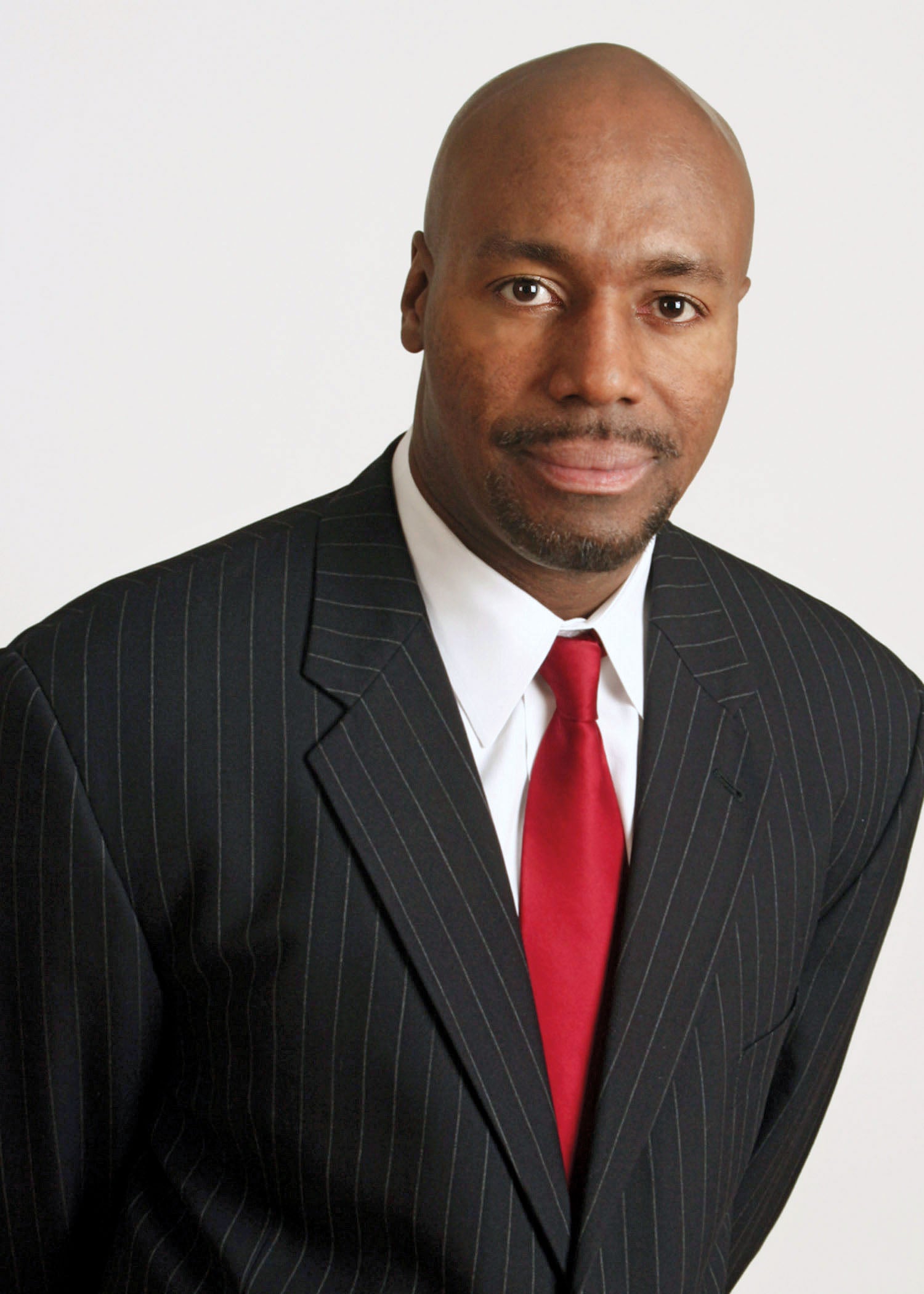Visiting Professor Paul Butler ’86 began his Last Lecture with a story about confronting a Chicago cop at the age of 12, when he biked “just over the line” into a predominantly white neighborhood. “Does that bike belong to you?” asked the cop, rolling down his car window. “Yes,” replied Butler, “does that car belong to you?” When he returned home, swaggering, he received a swift spanking. His mother cried harder than he did, Butler recalls, telling him “don’t you know what happens to black boys who talk back to cops?”
Butler was a federal prosecutor before becoming a professor of law at Georgetown University and focusing his career on “resisting the criminal legal process.” He has written two books, “Let’s Get Free: A Hip-Hop Theory of Justice” and “Chokehold: Policing Black Men.” Butler is a frequent legal commentator on CNN, MSNBC, and NPR, and has published op-eds in the New York Times, the Washington Post, the Boston Globe, and the Los Angeles Times.
Covering a brief timeline of recent police assaults against black people, from the 2015 death of Sandra Bland to the forceful arrest of a Harvard College undergraduate in Cambridge this spring, Butler encouraged HLS students to use their privilege and education to resist, name, and challenge injustice.
He recalled the words of Professor Jody Freeman’s orientation lecture in which she encourages 1Ls to use their “keys to the kingdom,” granted by their admission to HLS, with grace. Butler went on to explore what those keys are and how best to wield them. The privilege of an HLS degree, he said, comes with the responsibility to “use Harvard’s credentials and educational blessings to speak truth to power.”
Quoting from Audre Lord, James Baldwin, and Alice Walker, among others, Butler shared his lessons learned since his own HLS graduation, including the incident that made him “a man–a Black man” and turned him toward a career in teaching and writing that he has loved.
As a young prosecutor for the Department of Justice, he was sitting second chair on a career-making case. “Life was sweet,” he recalled. Then, right before trial, he was arrested. His neighbor had falsely accused him of pushing her in an argument over a parking space, and called the police. When the case was brought to trial, he worried that the judge would recognize him, but quickly realized that he was “just another faceless black man on trial.” The jury took fewer than 10 minutes to acquit. It wasn’t his innocence that he felt made them do so, however. It was his privilege and pedigree–his ability to hire a top lawyer, his social standing, and his degrees from Yale and Harvard Law.
“There’s a saying in black church,” said Butler, “A setback ain’t nothing but a setup for a comeback.” For Butler, that arrest was his setup for a meaningful career change. Unable to stomach going back to prosecuting, he turned to teaching and writing. “Going the way your blood beats always gets you to the right place,” he told the students, “celebrate how you are different from every other sentient being on earth–and bring your people with you.” The following day Butler was giving his final class at HLS, and his mother was on her way to attend.
Butler then turned to the criminal justice challenges of the past three years–the killing of Alton Sterling, the threats to immigrants and Dreamers, and the #MeToo movement. Harkening back to the role resistors have played in history, from his mother walking with Malcolm X to the freedom riders in the South, he wondered aloud what he would have done, hoping that he would have joined them.
“The kingdom that you’re getting the keys to is a dangerous place for many of its inhabitants,” he said, “what are you going to do about it?”
He reminded students of the power that lawyers have, to reach settlements and compensation for victims, to prosecute those in power, and to bring equality to institutions such as marriage. In the face of current injustices, Butler said he would wait for the graduating class to tell him what they will do, “You let me know.”
Butler closed his talk by displaying the 2016 photo of Iesha Evans standing proudly, with her sundress flowing in the breeze, before combat police in Baton Rouge. “What are you going to resist?” Butler asked.
Recalling the words of both Justice Clarence Thomas and President Obama on the legions of imprisoned black men, “there but for the grace of God go I.” Butler continued, “the determination of who goes to criminal court in chains should not be so fortuitous. How well you do in this world should not have to do so much with race and class and gender.” But as long as they do, he said, “we need all of you to use the opportunities and blessings you got here–to use your keys to the kingdom–to resist.”
The Last Lecture Series is organized by the 3L and LL.M. Class Marshals, and asks HLS professors to give talks addressing the graduating class. This year’s series also featured Professors Alex Whiting, Carol Steiker ’86, and Jody Freeman LL.M. ’91 S.J.D. ’95.
